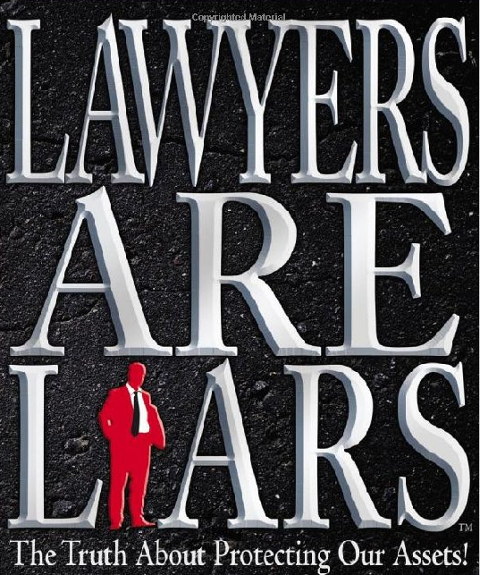

Credit: Book cover by Mark Kohler
"It's growing in influence not owing to patents but in spite of patents. China even permits software patents now; does that make China a software powerhouse? Not by a long shot! It's India, where such patents are banned, which takes the jackpot."In our view, patent maximalism is a flawed mindset and a 'brain virus'; one lawyer typically poisons the minds of others with patent maximalism. It has become like a faith and a religion; they're unable to see facts and instead saturate their minds with more of their nonsense, typically in exclusionary echo chambers that exclude people not like them. These are supposedly well-educated individuals, but greed outweighs the wits and they know they can make more money with patent maximalism (more litigation, draining money out of practising companies). Referring to patents correctly as "monopoly", this article from yesterday spoke about Lexaria; "Investors benefit from both a legal monopoly and the opportunity to generate royalty," it said. Yeah, some "opportunity" -- the opportunity or the chance to sue everybody. Good for lawyers, not necessarily for investors (especially not investors of the accused/defendants).
This morning an article from Texas turned up to remind us of the $502 million verdict against Apple. We wrote about it earlier this week and last week too. Investors of Apple certainly don't benefit from this patent troll, VirnetX, suing Apple in such notorious courts. Does that mean that these investors will urge Apple to stop software patents? They would be wise to. Courts and judges that oversee Apple cases appear to think so too.
"Mathematics (geometry) and software. That's all it boils down. Why would examiners permit that?"But Apple is actively pursuing software patents. Classic computer vision in this new example. It uses the buzzword "AR" to achieve this in spite of Alice etc. "Software giant Apple has filed a patent," it says, "dubbed "adaptive vehicle augmented reality (AR) display using stereographic imagery"."
Mathematics (geometry) and software. That's all it boils down. Why would examiners permit that?
Here is another new example, this time from Mastercard, which is pursuing blockchain patents. To quote:
Blockchain technology is gaining traction amongst mainstream financial service providers as the technology guarantees security, decentralization, cheaper transaction fees and faster ways of sending funds across the globe. Mastercard has also not been left behind in these developments. This is after it was rumored as being one of the payment card providers that refused to support Litecoin (LTC) and its Litepay project.
Mastercard has filed a blockchain system patent to store and verify identity data. The patent application was published on the 12th of April this year. In the abstract of the patent application, the team at Mastercard describes the patent in its intricacies. The team states that traditionally, proof of identy had been provided via government identification, credit cards and business cards and that such proof may be inaccurate or fabricated through fraud. They propose that there is a need for a technical solution to provide for the immutable storage of identity and credential data in a secure and verifiable manner.
"Unfortunately, even though courts repeatedly reject software patents the patent microcosm continues to give bad advice to clients."Here's another new example [1, 2] that says "PDCflow announces partnership with US Patent owner Zukunftware, LLC for management and licensing of newly patented technology."
Unfortunately, even though courts repeatedly reject software patents the patent microcosm continues to give bad advice to clients. Here we have Jonathon P. Western and Steven M. Jensen (from Mintz, Levin, Cohn, Ferris, Glovsky and Popeo, P.C.) suggesting a trick for pursuing patents that are now worthless. Yes, software patents are dead in the US (high courts always reject them). Western and Jensen say:
Software patents are generally directed to a sequence of steps or rules, i.e., an algorithm, performed by a computer programmed to carry out the algorithm.
It bears noting that although the overall test is often referred to as the Mayo/Alice test, Mayo did not actually use this term at all. That said, Mayo certainly addressed the concept. Justice Breyer, delivering the opinion for a unanimous Court, said “Prometheus’ patents set forth laws of nature….” Similarly, “And so a patent that simply describes that relation sets forth a natural law.” The opinion discussed Einstein and Archimedes to establish that, “A patent, for example, could not simply recite a law of nature and then add the instruction ‘apply the law.’” (emphasis in all three mine)
[...]
Let’s circle back now to our discussion of what the dictionaries said and whether “directed to” is non-exclusive (i.e., the aim can be toward multiple targets) as opposed to the suggestion that “directed at” means only one target. The most current Supreme Court authority (Alice) says the test is whether the claim is directed to patent-ineligible material. So if “directed to” allows multiple targets, it seems that only one such target needs to be non-statutory to potentially doom the patent. But if that’s the case, then it seems insufficient for the court in cases such as Vanda and Enfish to identify a statutory target, since that still leaves open the possibility of other, non-statutory targets. In reality, it seems clear that neither the Supreme Court, nor the Federal Circuit, has really thought about this distinction. The fact remains that very subtle differences in how one thinks about the phrase “directed to” can be outcome-determinative, and we’ve not been provided with sufficient guidance as to how that phrase should be interpreted. The conclusion is the same as in my last post: such uncertainly allows result-oriented opinions that cannot readily lead to any meaningful settling of this fundamental issue. We should demand clarification from either the courts or Congress, since the viability of so many patents depends on what this phrase is understood to mean.